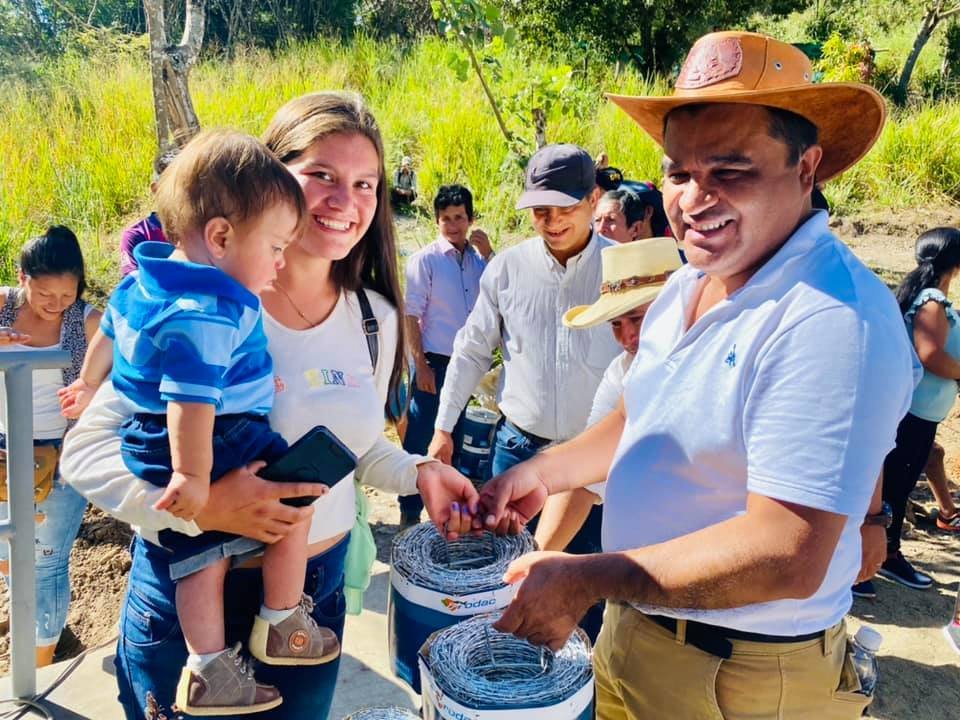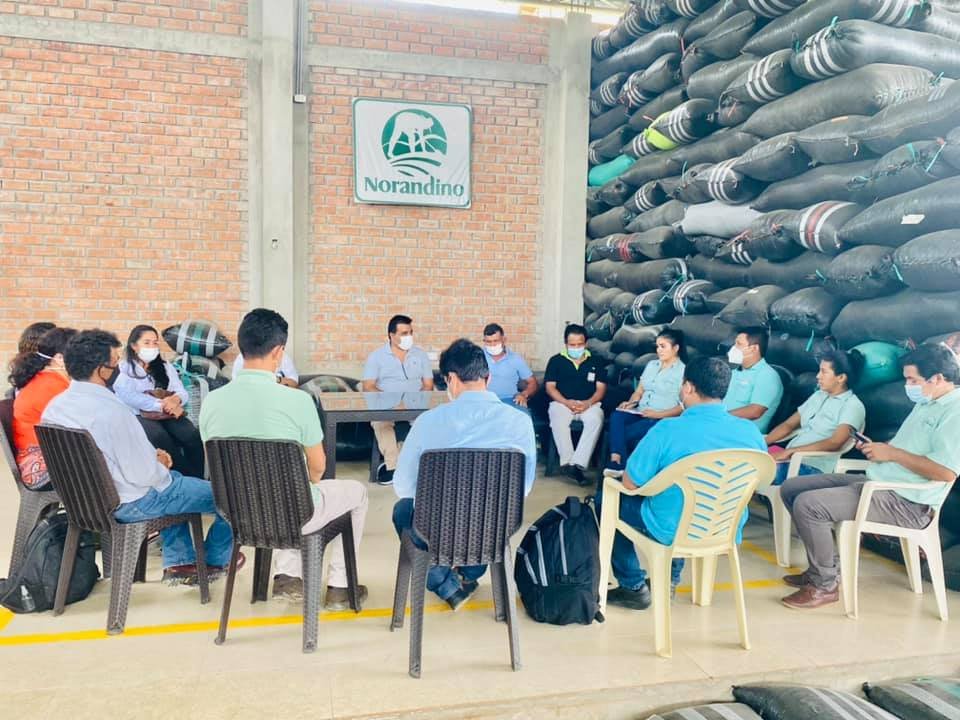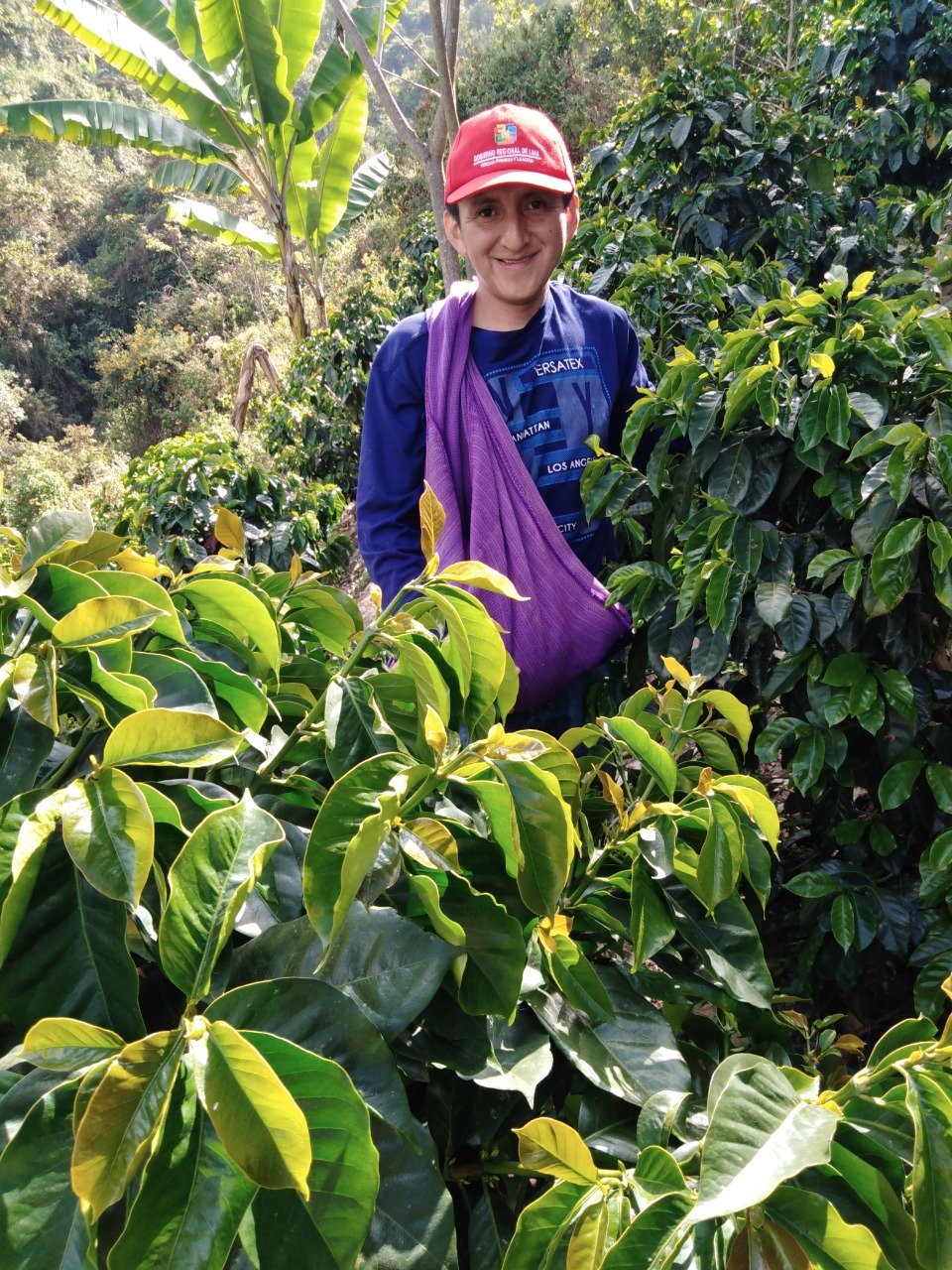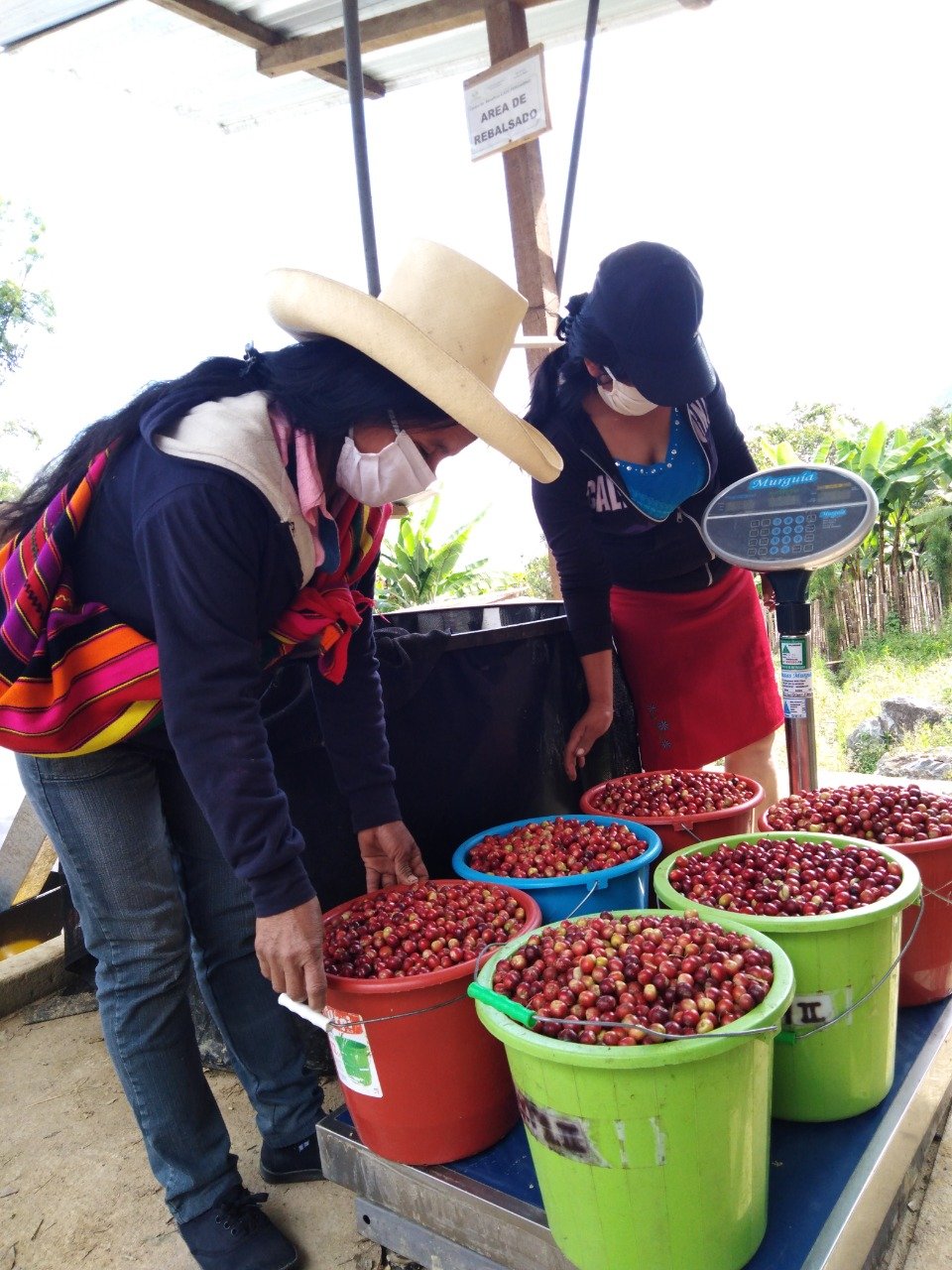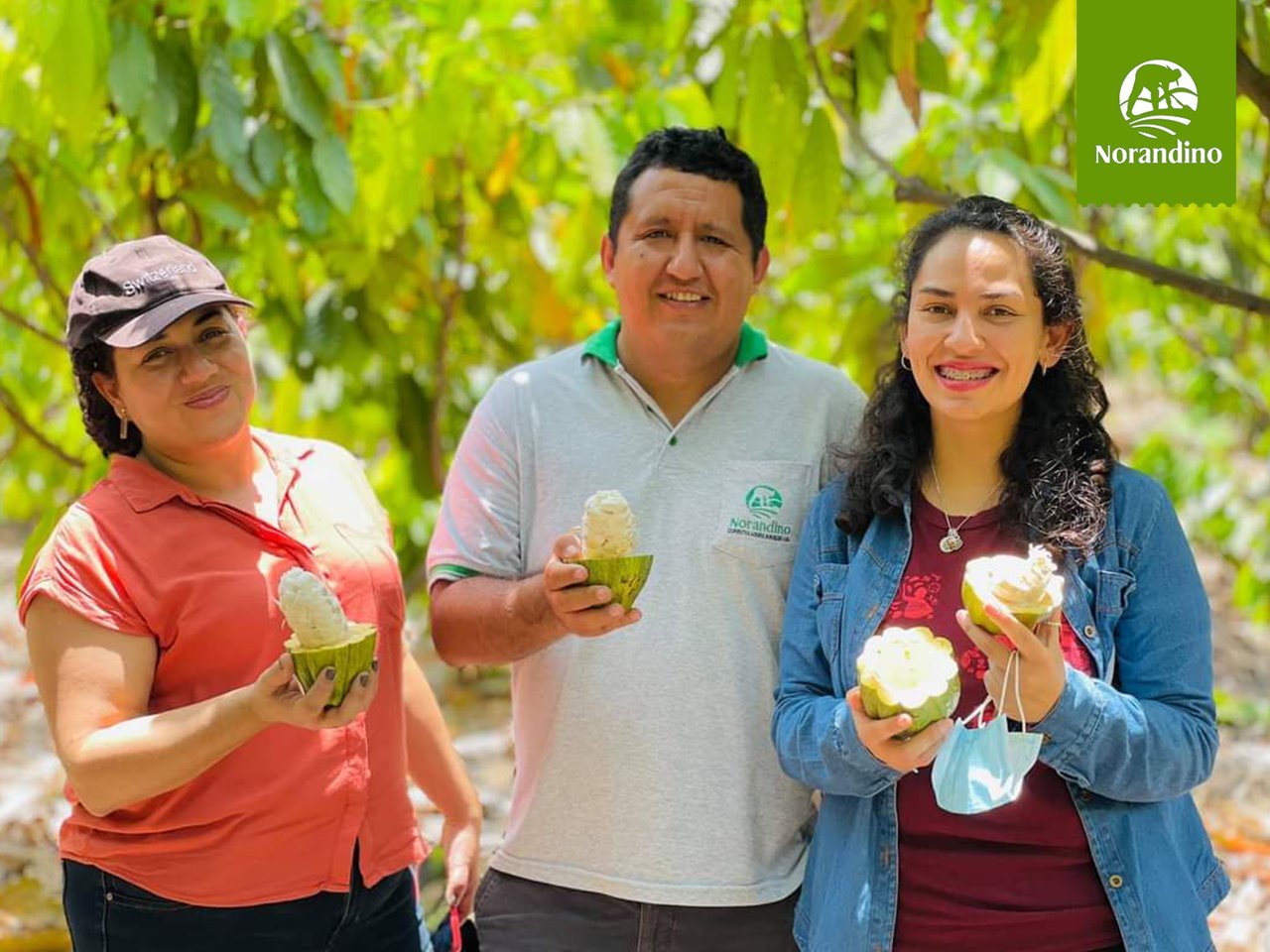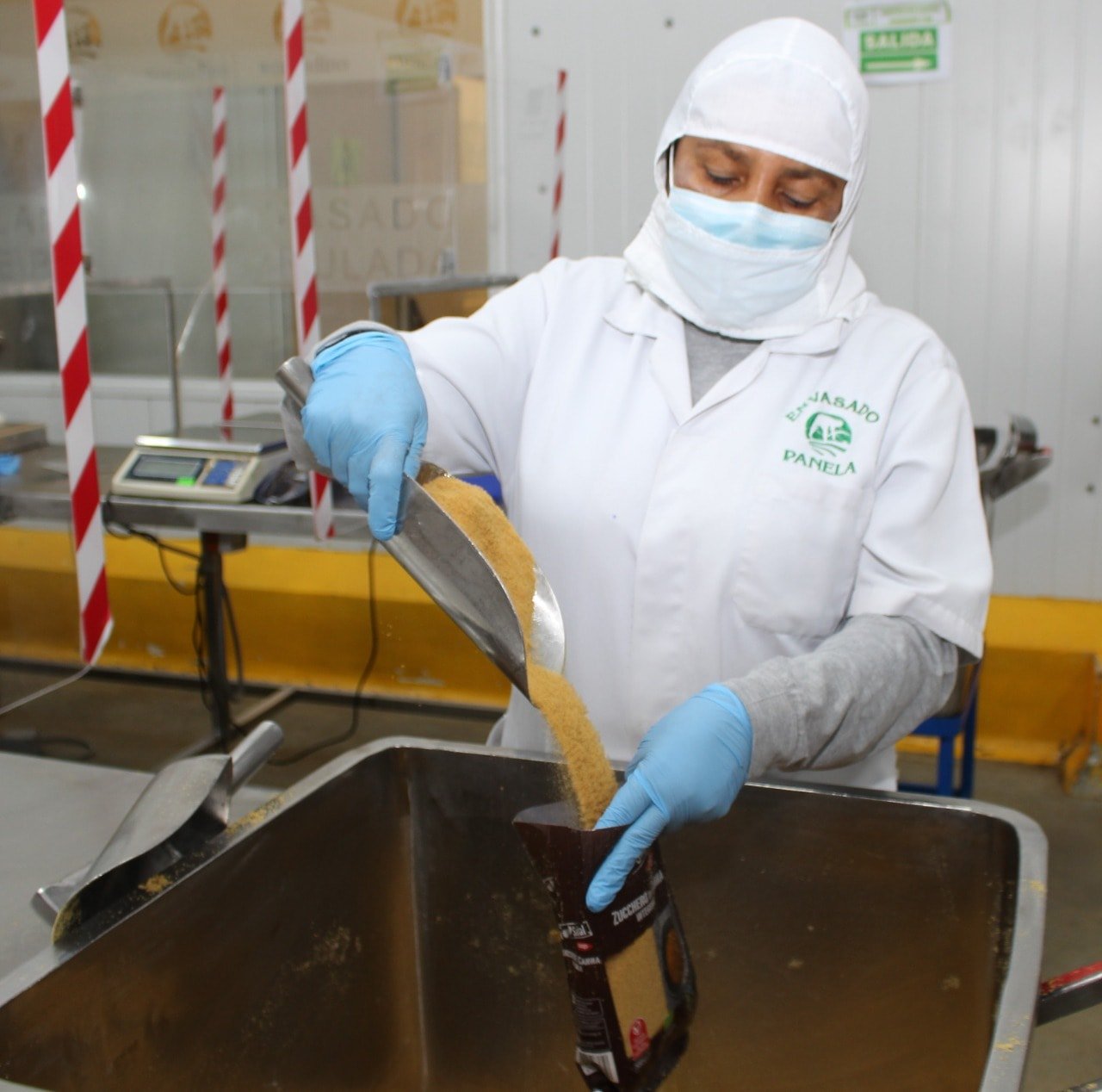Checking in with Santiago Paz of Cooperativa Norandino
In 1986, Equal Exchange’s founders had a dream: to turn both conventional trade and traditional business models upside down. In short, to put producers, workers, and people before profits. That dream remains active and unwavering. Today, as the food system becomes more consolidated, democratic institutions more eroded, and the climate crisis ever-more urgent, we have only intensified our commitment and our efforts. As we reflect on our journey—both the challenges weathered and successes accomplished—we recognize all the worker-owners, small farmers, producer cooperative representatives, organizational allies, and citizen-consumers who have struggled and celebrated alongside us. Whether literally working with us or walking on parallel journeys in their home countries, this movement has been built by countless dedicated, committed, and inspiring individuals.
This week, we share stories from some of those dedicated individuals who have been walking this road with us. Santiago Paz, Co-director and Export Manager of Norandino, a cooperative aggregating 90 grassroots organizations in Northwest Peru, is one of these inspiring and visionary leaders. For 32 years, he and the farmer cooperatives that make up Norandino have been working to open markets for small-scale coffee, cacao, and sugar producers. Like Equal Exchange, the operational work is carried out within an overarching vision: to build a democratic movement that not only improves livelihoods but gives economic and political power to those whose daily blood and sweat delivers high quality, organic food products to countries across the globe.
Earlier in April, the annual Specialty Coffee Association (SCA) conference was held in Boston where representatives from the coffee industry came together to network, learn, and carry out business. Equal Exchange used the opportunity to host an event for 200 of our Citizen-Consumers—individual activists concerned about the corporatization of the food system and its detrimental impacts on our democracy, farmer/worker/consumer rights, and the planet. It was no accident that we chose Santiago to speak at this event.
“I am so happy to be here speaking to all of you who are part of Equal Exchange. We will never forget, or tire of saying, that it was Equal Exchange that opened the door for us” said Santiago Paz (pictured above, right).
Rob Everts, former co-director of Equal Exchange, introduced him: “Santiago is a special friend of Equal Exchange. He has positively impacted the lives of thousands of small-scale farmers in Peru and in other countries in Latin America. Equal Exchange is proud to say that we were the guinea pigs; we imported the very first container of coffee from Cepicafe (a predecessor of Norandino) in the United States 25 years ago. Over the course of these years, we have shared risk many times with Norandino. And I can say that this relationship, both personally with Santiago and institutionally with Norandino, stands among the very strongest we have with cooperatives, and with cooperative leaders in the world.”
Santiago began organizing farmers in the Piura region first as a student intern 32 years ago. He never left. In 1995, he helped form Cepicafe, an organization made up of 18 cooperatives totaling 200 small-scale farmers, later becoming the General Manager. Two years later, Cepicafe sold their first 1.5 containers of coffee into the United States. The buyer was Equal Exchange.
The following update from Norandino comes primarily from Santiago’s presentation at the April Citizen-Consumer gathering.
Political instability in Peru
Politically, the situation in Peru is complicated and extremely volatile. There is civil unrest, worker strikes, transportation blockades, and confrontations with the police. Prices are skyrocketing. Eight people were killed in the violence that occurred recently.
People are frustrated because they had high expectations for Pedro Castillo, the newly elected President who took office in July 2021. He has been unable to deliver on his promises. In his first six months in office, Castillo’s cabinet changed four times, which means one minister changes every ten days. The executive and legislative branches are locked in conflict. Amidst the chaos, Castillo’s approval ratings have plummeted to the lowest Peru has seen in the past 20 years. At this point, it’s unclear what will happen with Castillo’s presidency.
Covid and the pandemic
Peru is one of the countries most affected by the pandemic. Covid caused 212,000 deaths and the economy suffered tremendous impacts at every level. Within Peru, the Piura region has also been hit very hard. Out of a population of two million, more than 13,000 lives were lost.
The pandemic presented a very challenging situation in Peru. Eighty five percent of the economy is performed in the informal sector. This means that people must go into the streets to work. They needed to live their normal lives because otherwise they could not feed their families. Fortunately, there was a high rate of vaccination (80%).
Norandino endures
“As we always like to say, we have a huge appreciation for Equal Exchange because they bought our first 1.5 containers of coffee in 1997. This purchase literally opened the doors for us to the international market.”
Since that first container and a half of coffee that entered the U.S. market, Norandino has become one of the most internationally recognized leaders in the fair trade movement and in the specialty coffee, cacao, and sugar industries. The cooperative has grown in numbers of producers and in sales; has diversified its product offerings; expanded its operations; won many awards for high quality products; and carries out a variety of social, ecological, political, and income-generating projects. Within Peru, the cooperative has received much acclaim and is often visited by organizations wishing to learn from their model. In fact, one of the first visits President Castillo made upon entering office was to travel to Piura to visit Norandino.
Looking back on 2021
Norandino is comprised of 7,000 small-scale producers. The cooperative provides pre-harvest financing, training and technical assistance in organic production, quality, and other services. One of their achievements has been financing and building a coffee processing plant, enabling the co-op to lower costs and add value to the green coffee they export.
In 2021, the cooperative processed and exported 13,000,000 pounds of green (raw) coffee beans (278 containers.) In addition to processing its members’ coffee, they also provide services to other coffee cooperatives throughout the country. Last year 30 million pounds of coffee were processed at their plant in total. “In fact,” Santiago told us, “Norandino now processes 10% of all the coffee grown in Peru. We consider this a huge accomplishment and (it) is having great impact.”
Norandino had a good year for coffee, with $25 million in sales. The highest volume of sales went to Germany and Belgium, although Santiago clarified that this is because many importers there buy the coffee only to export it again. Importers in the United States account for 21 percent of their coffee sales, among whom, “Royal Coffee and Equal Exchange are our most important clients.” Last year, Equal Exchange bought 15.5 containers.
Santiago closed the presentation with the following words:
“I want to express my deep appreciation to all of you. Our hearts are full of gratitude for Equal Exchange. Equal Exchange is one of the “fairest” cooperatives. They are one of the cooperatives that most deeply practices the true mission of fair trade. And, I always say that those working at Equal Exchange are some of the best people in the world. That includes so many others who collaborate with Equal Exchange. I’m always surprised at how much energy I get talking about the “mystique” of Equal Exchange that they never tire of promoting the deepest, most equitable, most fair, Fair Trade.”
Equal Exchange staff and Citizen-Consumers in attendance at Santiago’s presentation in April.



